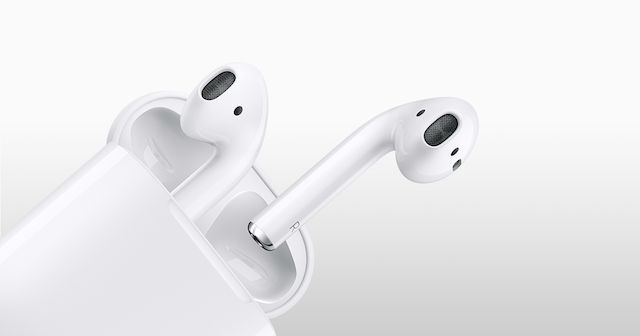
In Open-Plan Offices, AirPods Have Become the New Cubicle
AirPods have become a divisive addition to open-office workplaces, especially ad agencies.

A new report from DigiDay outline the AirPods phenomenon and how it had become a ubiquitous staple in office life, “with staffers walking around all day with the signature little pods in their ears.”
AirPods and other Bluetooth wireless headphones are convenient in open-plan offices because they allow workers to forget they’re wearing a device and to leave their desk without yanking their laptop onto the floor. In open offices, people commonly wander around with their headphones on all day, into bathrooms and kitchens, sometimes listening to nothing at all in order to avoid the constant distraction of compulsory social interaction.
“I know they’re not listening to music, or anything, but it’s still disconcerting to see them with something in their ears while we’re all discussing something,” said one agency CEO, who said he once had a meeting with someone wearing AirPods. “It’s like, ‘what?'”
In ad agencies, for example, an air of creative collaboration is necessary to build a successful and efficient workplace that creates effective products and services. Many executives at such agencies loath the newfound use of AirPods, claiming that it impedes on workplace culture.
Ted Nelson, CEO at Mechanica, calls this phenomenon the “AirPods barrier,” and says that is “impeding cultures and work environments that require creativity and collaboration.”
“AirPods are a totally different phenomenon,'” said Michelle Edelman, Petermayer’s EVP and chief strategy officer. “The product is honestly good, but wearing them 24/7 is going to mess with the notion of when you can and can’t disturb someone. So it’ll change social norms if people just start to leave them in during meetings.”
It’s certainly difficult to dispute the notion that Bluetooth headphones are changing both interpersonal relations and attention spans. According to researchers from the University of British Colombia, placing a cell phone on a table during a meeting lowers the perceived quality of conversation as well as rates of empathy and trust among participants.
“We don’t have a choice, and these conflicts will play out generationally,” says Leora Trub, a professor at Pace University who specializes in clinical psychology and the intersection of psychology and new 21st century technologies. “Even if AirPods are the issue, what happens is that internal conflicts within workplaces are about people worried about replacement, or simply getting older. That plays out as these skirmishes.”
Some agencies, on the other hand, are taking measure to prevent the “AirPods barrier” from becoming a pervasive issue in the workplace, going as far as to mutually decide to not use them, or play relaxing ambient music throughout the office.
“Airpods do present an entirely different issue,” says Renae Heuer, managing director at Huge Detroit. “There’s no visual signal that you’re occupied” since they’re smaller, hard to see, or in many cases, worn all the time. “So much for being respectful.”

